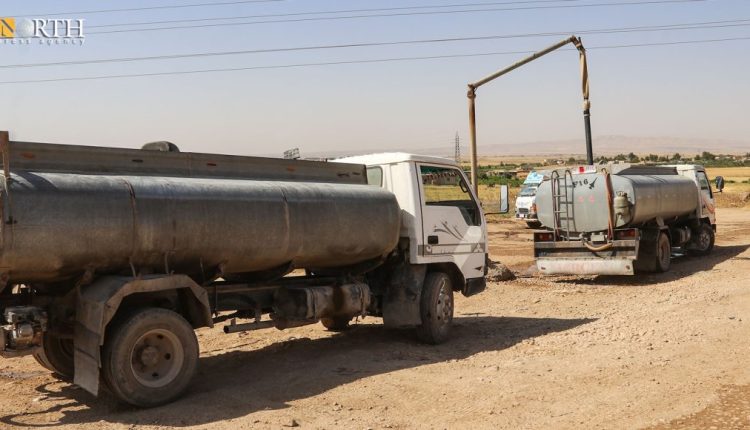HASAKAH, Syria (North Press) – Water levels of the wells in Hasakah Governorate in Northeast Syria have decreased as a result of the recent heat wave, an official of the Autonomous Administration of North and East Syria (AANES) said on Tuesday.
The decrease of the water in the wells is due to the impact of the high temperatures on the region and the recession of the Khabur River due to cutoff by Turkey, said Yahya Hami, co-chair of the Water Directorate of the AANES in the city of Hasakah.
Previously, 70 percent of a 100-meter-depth well was full of water, but now only 30 percent of the wells is full of water, Hami told North Press.
“Therefore, a 22,000-liter-tanker needs two hours to be filled with water,” the official noted. “Previously, it only took 40 minutes.”

He warned that the region is witnessing a significant water crisis, and that the wells may dry up in the coming period that will lead to a humanitarian crisis.
About one million people in Hasakah depend on water tankers to access to water for drinking as Turkish forces halt pumping water from Alouk station in Sere Kaniye (Ras al-Ain) countryside, north of Hasakah.
The Alouk water station, which is located in the countryside of Sere Kaniye (Ras al-Ain) in the north of Hasakah, has been under the occupation of Turkey and its affiliated armed opposition factions, aka the Syrian National Army (SNA), since October 2019 following a military operation dubbed “Peace Spring” in which Turkey occupied Sere Kaniye and Tel Abyad.
On June 22, the United Nations Office for the Coordination of Humanitarian Affairs (UNOCHA) said more than 1.8 million people in Syria need urgent life-saving support to access safe drinking water in the summer heat.

